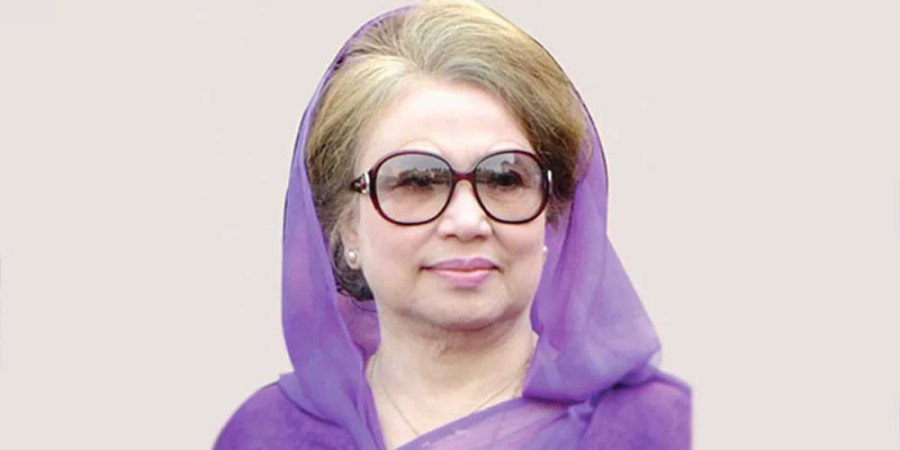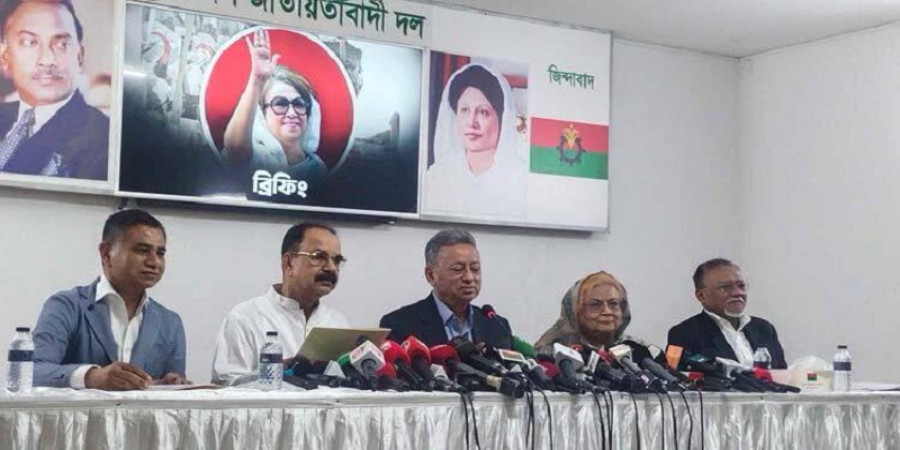
ছবি: Photo: Collected
In a significant observation, the court has stated that former Prime Minister Khaleda Zia and others were implicated in the Niko graft case solely for political reasons and to damage her reputation. On Sunday, the full 133-page verdict of the case was released, in which the Dhaka Special Judge Court-4, led by Judge Md. Robiul Alam, acquitted Khaleda Zia and seven others on February 19.
The court noted that the case against Khaleda Zia, the chairperson of the Bangladesh Nationalist Party (BNP), had been ongoing for nearly 18 years, which was unnecessary and unjust. The judge emphasized that the case was filed with the intent to harm her reputation and for political gains. In contrast, a similar case against former Prime Minister Sheikh Hasina was dismissed by the High Court in 2010.
The Niko graft case originated in 2007 during the tenure of the caretaker government. Two separate cases were filed at Tejgaon Police Station against Sheikh Hasina and Khaleda Zia, accusing them of corruption in a deal with the Canadian company Niko Resources. While Hasina’s case was quashed, Khaleda Zia’s case continued for nearly two decades.
In the verdict, Judge Robiul Alam highlighted that the Framework of Understanding (FOU) agreement between Bapex and Niko Resources Bangladesh Ltd. was signed on August 23, 1999, during Sheikh Hasina’s government. This agreement was aimed at conducting surveys for hydrocarbon development and production from marginal gas fields in Chhatak, Feni, and Kamta. Following the FOU, a Joint Venture Agreement (JVA) was signed on October 16, 2023, for the development and production of petroleum from the abandoned Chhatak and Feni gas fields.
The court observed that there was no evidence of corruption, abuse of power, or criminal misconduct by Khaleda Zia or the other accused in the signing of the JVA. The judge stated that the accused had no ill intentions and were not involved in any criminal conspiracy or wrongdoing.
The verdict also addressed the mistreatment of one of the accused, Selim Bhuiyan, who was remanded for four days and allegedly tortured at Gulshan and Cantonment police stations. During the remand, Bhuiyan fell ill and was admitted to Rajarbagh Central Police Hospital for treatment. The court noted that his confession was extracted under duress and was not voluntary.
The judge further emphasized that the Anti-Corruption Commission (ACC) should conduct investigations more carefully to ensure that innocent individuals are not wrongfully targeted or harassed by the state.
Among those acquitted in the case were former Principal Secretary to the Prime Minister Kamal Uddin Siddiqui, former Acting Secretary of the Energy and Mineral Resources Ministry Khandaker Shahidul Islam, former Senior Assistant Secretary CM Yusuf Hossain, former Bapex General Manager Mir Mainul Haque, businessman Giasuddin Al Mamun, International Travel Corporation Chairman Selim Bhuiyan, and Niko’s Vice President for South Asia Kashem Sharif.
The case was initially filed on December 9, 2007, by ACC Assistant Director Muhammad Mahbubul Alam at Tejgaon Police Station, accusing Khaleda Zia and four others of causing financial losses to the state through an opaque deal with Niko. Later, on May 5, 2018, charges were framed against Khaleda Zia and 11 others, alleging a loss of approximately Tk 13,777 crore to the state. On March 19, 2023, Dhaka’s 9th Special Judge Court (temporary) in Keraniganj, presided over by Judge Sheikh Hafizur Rahman, formally framed the charges.
During the trial, 39 out of 68 witnesses testified. However, three accused—BNP Standing Committee member Barrister Moudud Ahmed, former State Minister for Energy AKM Mosharraf Hossain, and former Bapex Secretary Md. Shafiur Rahman—passed away during the proceedings and were exempted from the case.
The court’s observations have sparked discussions about the misuse of legal processes for political purposes and the need for accountability in corruption investigations. The verdict has been seen as a vindication for Khaleda Zia and her co-accused, who have long maintained their innocence in the case.
The Niko graft case has been one of the most high-profile corruption cases in Bangladesh, with significant political implications. The court’s ruling underscores the importance of ensuring that legal proceedings are free from political influence and that individuals are not wrongfully targeted for their political affiliations.
The acquittal of Khaleda Zia and the others marks a significant moment in Bangladesh’s legal and political landscape, raising questions about the fairness and integrity of past investigations. The verdict also highlights the need for reforms in the justice system to prevent the misuse of legal mechanisms for political vendettas.
As the full verdict is made public, it remains to be seen how this development will impact the political dynamics in Bangladesh, particularly in the lead-up to the next general elections. The ruling is expected to have far-reaching consequences for the BNP and its leadership, as well as for the broader discourse on governance and accountability in the country.
repoter






